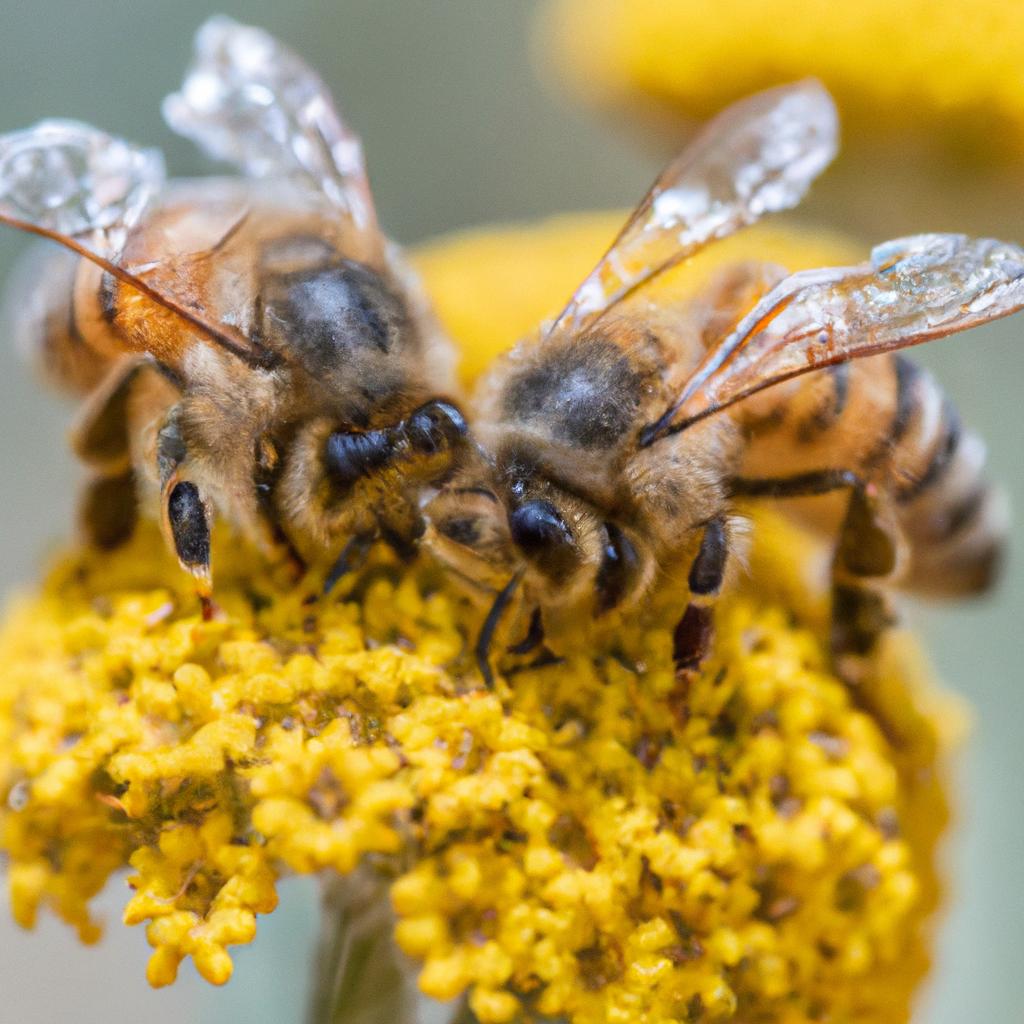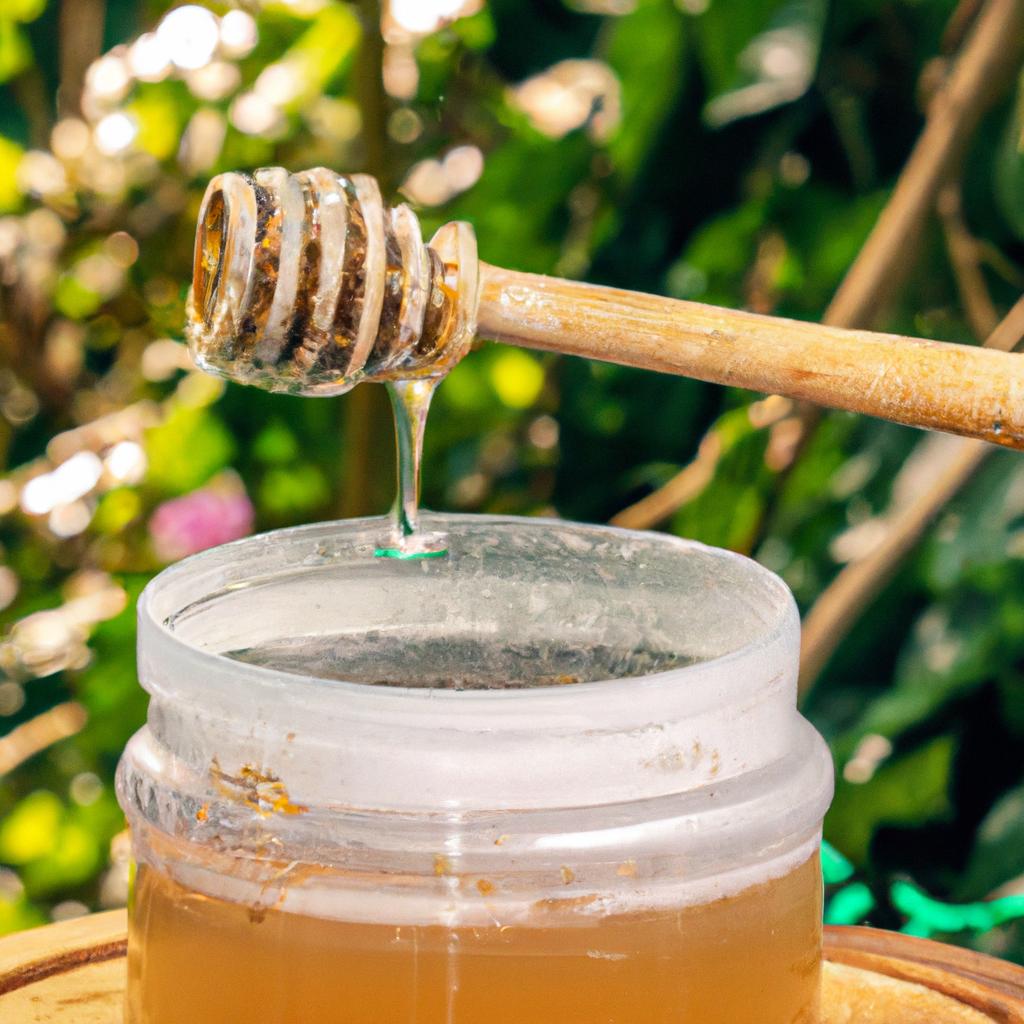Honey is a sweet and nutritious food that has been used by humans for centuries. It is produced by bees from nectar and pollen collected from flowers and plants. But have you ever wondered how long it takes bees to make honey? In this article, we will explore the process of honey production and the factors that affect its timeframe.
Introduction

Honey is a natural sweetener that is not only delicious but also has many health benefits. It is rich in antioxidants, enzymes, and other nutrients that can boost the immune system, improve digestion, and promote overall health. The importance of honey in our lives cannot be overstated, and the production process is an essential part of beekeeping.
Beekeeping and Honey Production

Beekeeping is the practice of maintaining bee colonies, usually in hives, for the purpose of collecting honey and other products like beeswax, propolis, and royal jelly. Honey production is the process of converting nectar into honey, which is then stored in the honeycomb cells for future use.
Beekeeping requires knowledge and skills to manage bee colonies effectively. It involves providing the bees with a suitable environment, feeding them when necessary, and protecting them from predators and diseases. Honey production, on the other hand, involves several steps, including collecting nectar, converting it into honey, and storing it in the honeycomb.
The process of honey production can take weeks or months, depending on several factors. In the next section, we will look at how bees make honey in more detail.
How Bees Make Honey
Honey production is a complex process that involves several stages. Bees collect nectar from flowers and plants using their long tongues and store it in their honey stomachs. The nectar is then mixed with enzymes in the bees’ mouths, which break down the complex sugars into simpler sugars like glucose and fructose.
Once the bees have collected enough nectar, they return to the hive and regurgitate it into the honeycomb cells. The bees then fan their wings to evaporate the excess moisture from the nectar, which thickens it into honey. Finally, the bees cap the honeycomb cells with beeswax to seal the honey inside and preserve it for future use.
The process of converting nectar into honey can take several days or weeks, depending on the amount of nectar collected and the environmental conditions. In the next section, we will look at the factors that affect honey production.
How Bees Make Honey
The process of making honey involves several steps that bees follow instinctively. The first step is the collection of nectar from flowers and plants. Bees use their long tongues to extract nectar from the flowers, and they store it in their honey stomachs. During this process, bees also collect pollen, which is a source of protein for the colony.
Once the bees have collected enough nectar, they return to the hive to start the second step, which is the enzymatic process. Bees regurgitate the nectar into the honeycomb cells and mix it with enzymes from their mouths. These enzymes break down the complex sugars in the nectar into simpler sugars like glucose and fructose, which make the honey sweeter and easier to digest.
The third step in the honey-making process is evaporation and capping. Bees fan their wings to evaporate the excess moisture from the nectar, which thickens it into honey. When the honey is ready, bees cap the honeycomb cells with beeswax to seal the honey inside and protect it from moisture and air.
Factors Affecting Honey Production
Several factors can affect honey production, including weather conditions, the availability of nectar sources, and hive management practices. Weather conditions like temperature, humidity, and rainfall can impact the growth and blooming of plants, which affects the amount and quality of nectar available to bees.
The availability of nectar sources is another critical factor in honey production. Bees need a steady supply of nectar to produce honey, and the availability of nectar sources can vary depending on the season and location. Beekeepers can help by planting bee-friendly plants and flowers and providing sugar syrup when nectar sources are scarce.
Hive management practices can also affect honey production. Proper hive maintenance, including regular cleaning and inspection, can help prevent diseases and pests that can harm bees and reduce honey production. Beekeepers can also manage the number of bees in a colony to ensure that they have enough space and resources to produce honey.
In conclusion, honey production is a complex process that requires the collective effort of bees and beekeepers. Understanding the process of honey production and the factors that affect it can help beekeepers produce high-quality honey and ensure the health and well-being of their colonies. At BeeKeepinglove.com, we are committed to providing beekeepers with the knowledge and resources they need to succeed in beekeeping and honey production.
Timeframe for Honey Production
The timeframe for honey production can vary depending on several variables. One of the most critical factors is environmental conditions, such as temperature and humidity. Bees need warm and dry weather to collect nectar efficiently and evaporate excess moisture from it. If the weather is too cold or wet, bees may not be able to collect enough nectar or dry it out properly, which can prolong the honey production process.
Another factor that affects honey production is the availability of nectar sources. Bees need a diverse range of flowers and plants to collect nectar from, and if there is a lack of nectar sources, honey production may be slower.
Hive management practices can also impact the timeframe for honey production. Proper hive maintenance, including regular inspections, feeding, and disease control, can ensure that bees are healthy and productive, resulting in faster honey production.
On average, it takes bees anywhere from a few days to several weeks to make honey, depending on the factors mentioned above. However, the amount of honey produced can vary greatly, from a few pounds to hundreds of pounds, depending on the size of the bee colony and the availability of nectar sources.
Conclusion
In conclusion, bees play a vital role in our ecosystem, and honey production is an essential part of beekeeping. Honey is not only a delicious and nutritious food, but it also has many health benefits. The process of honey production can take anywhere from a few days to several weeks, depending on several factors such as environmental conditions, availability of nectar sources, and hive management practices.
Beekeepinglove.com is dedicated to providing information and resources for beekeepers and honey lovers alike. By understanding how bees make honey and the factors that affect honey production, we can appreciate the hard work and dedication that goes into producing this sweet and nutritious food. So, whether you are a seasoned beekeeper or a new enthusiast, we hope this article has provided valuable insights into the fascinating world of bees and honey production.
